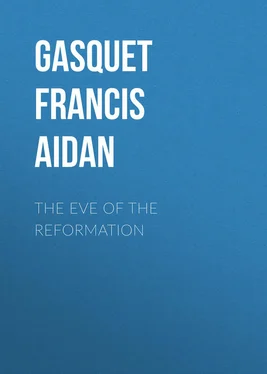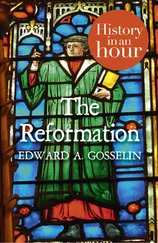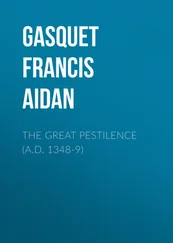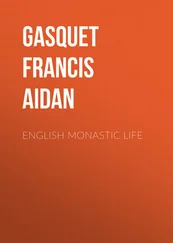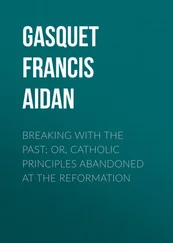Francis Gasquet - The Eve of the Reformation
Здесь есть возможность читать онлайн «Francis Gasquet - The Eve of the Reformation» — ознакомительный отрывок электронной книги совершенно бесплатно, а после прочтения отрывка купить полную версию. В некоторых случаях можно слушать аудио, скачать через торрент в формате fb2 и присутствует краткое содержание. Жанр: foreign_antique, foreign_prose, на английском языке. Описание произведения, (предисловие) а так же отзывы посетителей доступны на портале библиотеки ЛибКат.
- Название:The Eve of the Reformation
- Автор:
- Жанр:
- Год:неизвестен
- ISBN:нет данных
- Рейтинг книги:3 / 5. Голосов: 1
-
Избранное:Добавить в избранное
- Отзывы:
-
Ваша оценка:
- 60
- 1
- 2
- 3
- 4
- 5
The Eve of the Reformation: краткое содержание, описание и аннотация
Предлагаем к чтению аннотацию, описание, краткое содержание или предисловие (зависит от того, что написал сам автор книги «The Eve of the Reformation»). Если вы не нашли необходимую информацию о книге — напишите в комментариях, мы постараемся отыскать её.
The Eve of the Reformation — читать онлайн ознакомительный отрывок
Ниже представлен текст книги, разбитый по страницам. Система сохранения места последней прочитанной страницы, позволяет с удобством читать онлайн бесплатно книгу «The Eve of the Reformation», без необходимости каждый раз заново искать на чём Вы остановились. Поставьте закладку, и сможете в любой момент перейти на страницу, на которой закончили чтение.
Интервал:
Закладка:
To take one more example: Bishop Tunstall, on Palm Sunday, 1539, preached before the king and court. His object was to defend the rejection of the Papal supremacy and jurisdiction. He declaimed against the notion that the Popes were to be considered as free from subjection to worldly powers, maintaining that in this they were like all other men. “The Popes,” he says, “exalt their seat above the stars of God, and ascend above the clouds, and will be like to God Almighty… The Bishop of Rome offers his feet to be kissed, shod with his shoes on. This I saw myself, being present thirty-four years ago, when Julius, the Bishop of Rome, stood on his feet and one of his chamberlains held up his skirt because it stood not, as he thought, with his dignity that he should do it himself, that his shoes might appear, whilst a nobleman of great age prostrated himself upon the ground and kissed his shoes.” 118
To us, to-day, much that was written and spoken at this time will appear, like many of the above passages, foolish and exaggerated; but the language served its purpose, and contributed more than anything else to lower the Popes in the eyes of the people, and to justify in their minds the overthrow of the ecclesiastical system which had postulated the Pope as the universal Father of the Christian Church. Each Sunday, in every parish church throughout the country, they had been invited in the bidding prayer, as their fathers had been for generations, to remember their duty of praying for their common Father, the Pope. When the Pope’s authority was finally rejected by the English king and his advisers, it was necessary to justify this serious breach with the past religious practice, and the works of the period prove beyond doubt that this was done in the popular mind by turning men’s thoughts to the temporal aspect of the Papacy, and making them think that it was for the national profit and honour that this foreign yoke should be cast off. Whilst this is clear, it is also equally clear in the works of the time that the purely religious aspect of the question was as far as possible relegated to a secondary place in the discussions. This was perhaps not unnatural, as the duty of defending the rejection of the Papal supremacy can hardly have been very tasteful to those who were forced by the strong arm of the State to justify it before the people. As late as 1540 we are told by a contemporary writer that the spirituality under the bishops “favour as much as they dare the Bishop of Rome’s laws and his ways.” 119
Even the actual meaning attached to the formal acknowledgment of the king’s Headship by the clergy was sufficiently ambiguous to be understood, by some at least, as aimed merely at the temporal jurisdiction of the Roman curia. It is true it is usually understood that Convocation by its act, acknowledging Henry as sole supreme Head of the Church of England, gave him absolute spiritual jurisdiction. Whatever may have been the intention of the king in requiring the acknowledgment from the clergy, it seems absolutely certain that the ruling powers in the Church considered that by their grant there was no derogation of the Pope’s spiritual jurisdiction.
A comparison of the clauses required by Henry with those actually granted by Convocation makes it evident that any admission that the crown had any cure of souls, that is, spiritual jurisdiction, was specifically guarded against. In place of the clause containing the words, “cure of souls committed to his Majesty,” proposed in the king’s name to his clergy, they adopted the form, “the nation committed to his Majesty.” The other royal demands were modified in the same manner, and it is consequently obvious that all the insertions proposed by the crown were weighed with the greatest care by skilled ecclesiastical jurists in some two and thirty sessions, and the changes introduced by them with the proposals made on behalf of the king throw considerable light upon the meaning which Convocation intended to give to the Supremum Caput clause. In one sense, perhaps not the obvious one, but one that had de facto been recognised during Catholic ages, the sovereign was the Protector – the advocatus – of the Church in his country, and to him the clergy would look to protect his people from the introduction of heresy and for maintenance in their temporalities. So that whilst, on the one hand, the king and Thomas Cromwell may well have desired the admission of Henry’s authority over “the English Church, whose Protector and supreme Head he alone is,” to cover even spiritual jurisdiction, on the other hand, Warham and the English Bishops evidently did intend it to cover only an admission that the king had taken all jurisdiction in temporals, hitherto exercised by the Pope in England, into his own hands.
Moreover, looking at what was demanded and at what was granted by the clergy, there is little room for doubt that they at first deliberately eliminated any acknowledgment of the Royal jurisdiction. This deduction is turned into a certainty by the subsequent action of Archbishop Warham. He first protested that the admission was not to be twisted in “derogation of the Roman Pontiff or the Apostolic See,” and the very last act of his life was the drafting of an elaborate exposition, to be delivered in the House of Lords, of the impossibility of the king’s having spiritual jurisdiction, from the very nature of the constitution of the Christian Church. Such jurisdiction, he claimed, belonged of right to the Roman See. 120
That the admission wrung from the clergy in fact formed the thin end of the wedge which finally severed the English Church from the spiritual jurisdiction of the Holy See is obvious. But the “thin end” was, there can be hardly any doubt, the temporal aspect of the authority of the Roman See; and that its insertion at all was possible may be said in greater measure to be due to the fact that the exercise of jurisdiction in temporals by a foreign authority had long been a matter which many Englishmen had strongly resented.
CHAPTER V
CLERGY AND LAITY
It is very generally asserted that on the eve of the Reformation the laity in England had no particular love or respect for churchmen. That there were grave difficulties and disagreements between the two estates is supposed to be certain. On the face of it, however, the reason and origin of what is frequently called “the grudge” of laymen against the ecclesiastics is obviously much misunderstood. Its extent is exaggerated, its origin put at an earlier date than should be assigned to it, and the whole meaning of the points at issue interpreted quite unnecessarily as evidence of a popular and deep-seated disbelief in the prevailing ecclesiastical system. To understand the temper of people and priest in those times, it is obviously necessary to examine into this question in some detail. We are not without abundant material in the literature of the period for forming a judgment as to the relations which then existed between the clerical and lay elements in the State. Fortunately, not only have we assertions on the one side and on the other as to the questions at issue, but the whole matter was debated at the time in a series of tracts by two eminent laymen. This discussion was carried on between an anonymous writer, now recognised as the lawyer, Christopher Saint-German, and Sir Thomas More himself.
Christopher Saint-German, who is chiefly known as the writer of a Dyalogue in English between a Student of Law and a Doctor of Divinity , belonged to the Inner Temple, and was, it has already been said, a lawyer of considerable repute. About the year 1532, a tract from his pen called A treatise concerning the division between the spiritualtie and temporaltie appeared anonymously. To this Sir Thomas More, who had just resigned the office of Chancellor, replied in his celebrated Apology , published in 1533. Saint-German rejoined in the same year with A Dyalogue between two Englishmen, whereof one is called Salem and the other Bizance , More immediately retorting with the Debellacyon of Salem and Bizance . In these four treatises the whole matter of the supposed feud between the clergy and laity is thrashed out, and the points at issue are clearly stated and discussed.
Читать дальшеИнтервал:
Закладка:
Похожие книги на «The Eve of the Reformation»
Представляем Вашему вниманию похожие книги на «The Eve of the Reformation» списком для выбора. Мы отобрали схожую по названию и смыслу литературу в надежде предоставить читателям больше вариантов отыскать новые, интересные, ещё непрочитанные произведения.
Обсуждение, отзывы о книге «The Eve of the Reformation» и просто собственные мнения читателей. Оставьте ваши комментарии, напишите, что Вы думаете о произведении, его смысле или главных героях. Укажите что конкретно понравилось, а что нет, и почему Вы так считаете.
